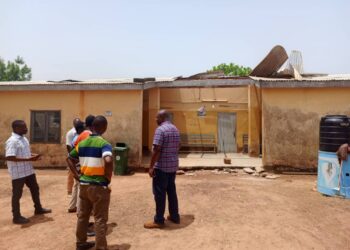Camboo drivers who frequently use the Wa-Dorimon road are calling on the government to urgently address its deteriorating state. The road connects Wa Municipality to the Wa West District in the Upper West Region.
The deplorable condition of the road worsened following years of neglect which poses a significant danger to pedestrians and motorists.
The road has become notorious for its bumpy, uneven surfaces, creating hazardous conditions that lead to frequent vehicle breakdowns and increased maintenance costs for drivers.
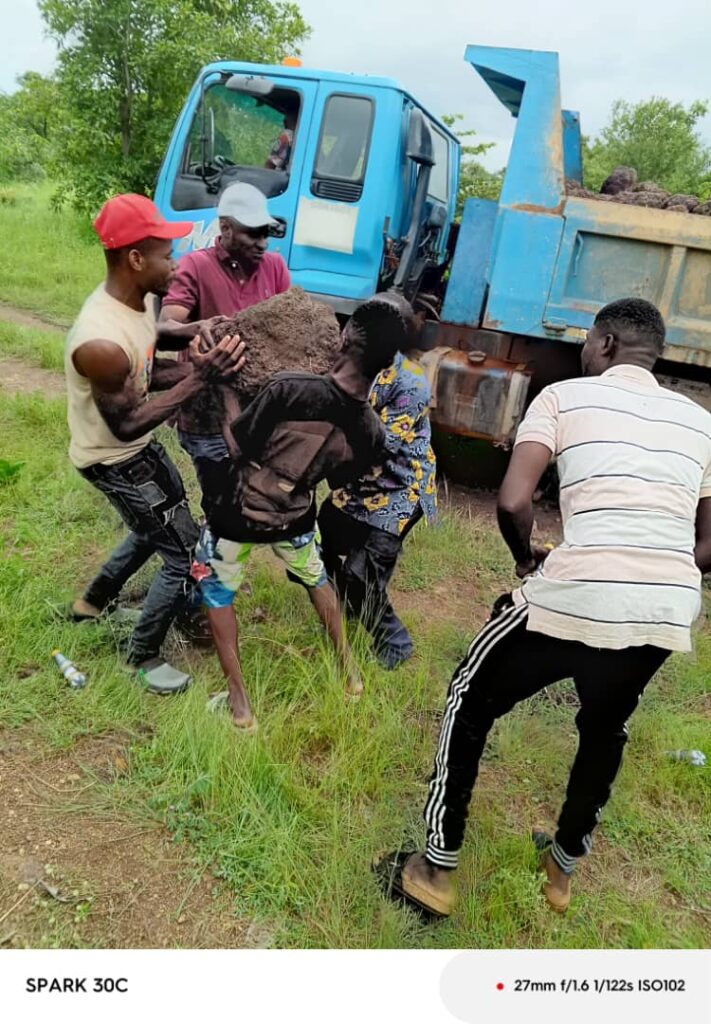
Residents are growing increasingly concerned, particularly as the road’s poor condition puts lives at risk.
Saaka Fuseini, Assembly Member for Dorimon, has joined drivers in urging authorities to take immediate action. He expressed frustration at the lack of attention given to the road, stating that Dorimon, a major community in the area, should not be subjected to such poor infrastructure.
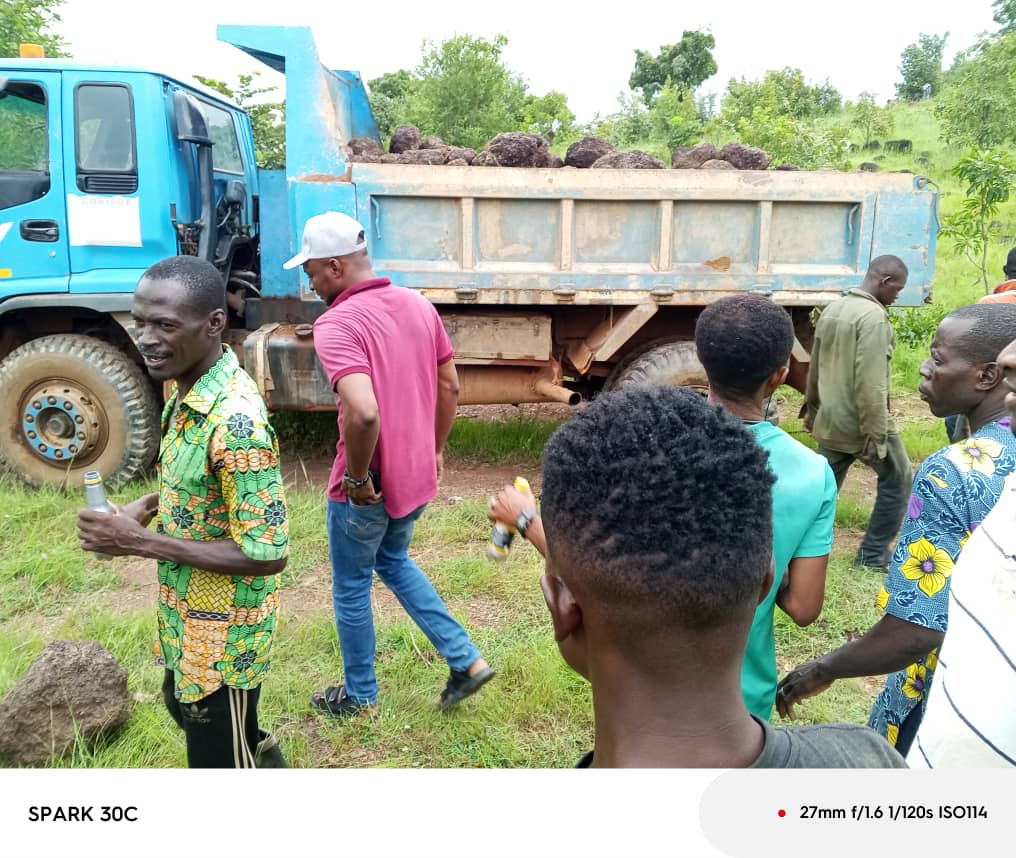
“We appeal to the District Chief Executive, the Minister, and even the President to give attention to the Wa-Dorimon road. Dorimon community does not deserve to have such a road,” Fuseini lamented. “This road is not supposed to be fixed through communal labour.”
Yet, we’ve had to organize ourselves to repair some of the worst portions as a temporary measure. The level of deterioration is unimaginable, and it is simply unacceptable for a community like ours to continue suffering like this. Dorimon doesn’t have a road; we are pleading for help.”
Inhabitants of the area, out of frustration, have taken it upon themselves to conduct makeshift repairs to the road. Led by the Assembly Member and tricycle drivers, they organized to fill potholes and fix damaged sections with stones in an attempt to make the road passable.
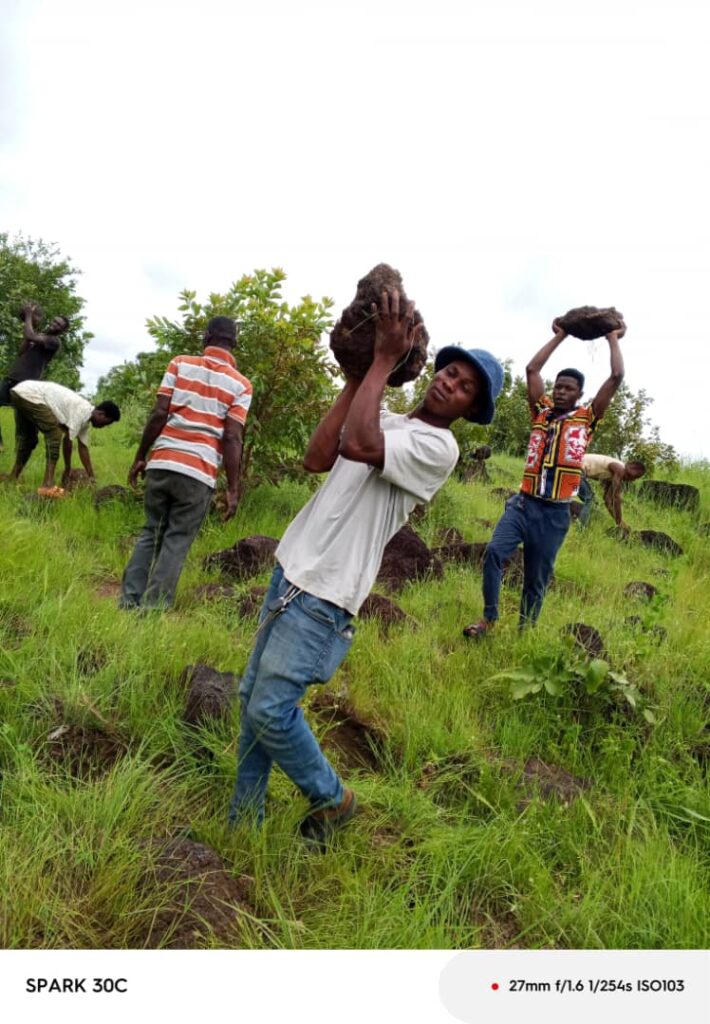
However, these temporary fixes do little to improve the long-term safety of the road, leaving many anxious for a more permanent solution from the government.
Drivers, especially tricycle, or “camboo” drivers, who often transport passengers along the Wa-Dorimon route, are feeling the impact of the road’s condition firsthand.
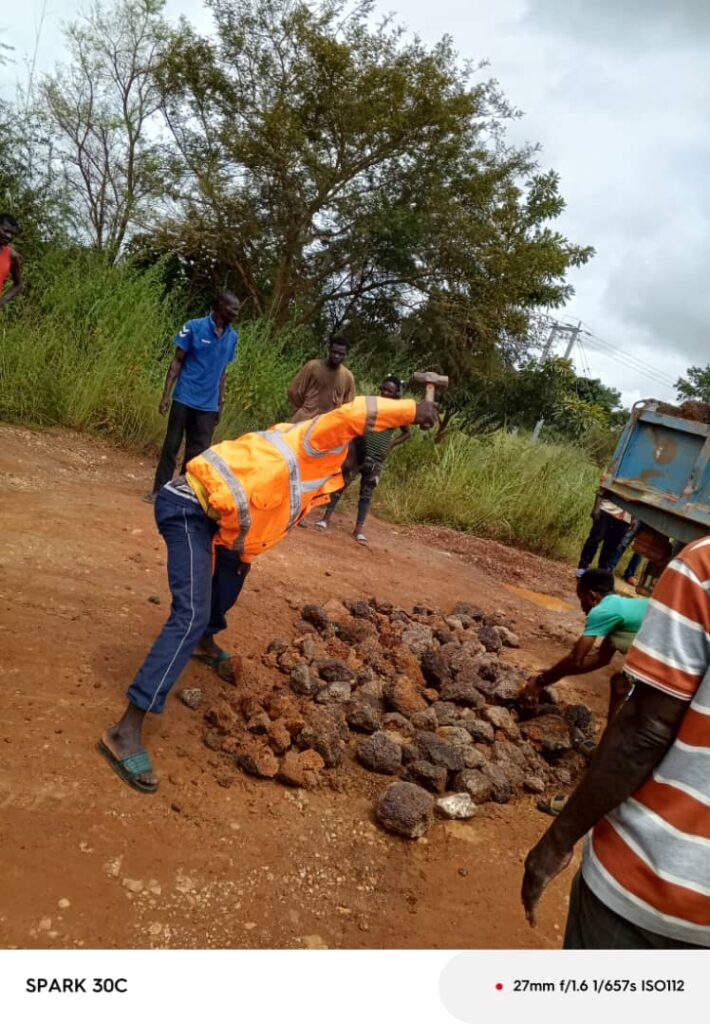
Naa Rafiq, a tricycle driver, recounted a recent accident that underscored the dangers on the road.
“Last month, there was a horrific accident where a woman broke her leg and arm. This could have been avoided if the road was in better condition. The rough nature of the road causes vehicles to swerve uncontrollably, leading to accidents like this,” Rafiq shared.
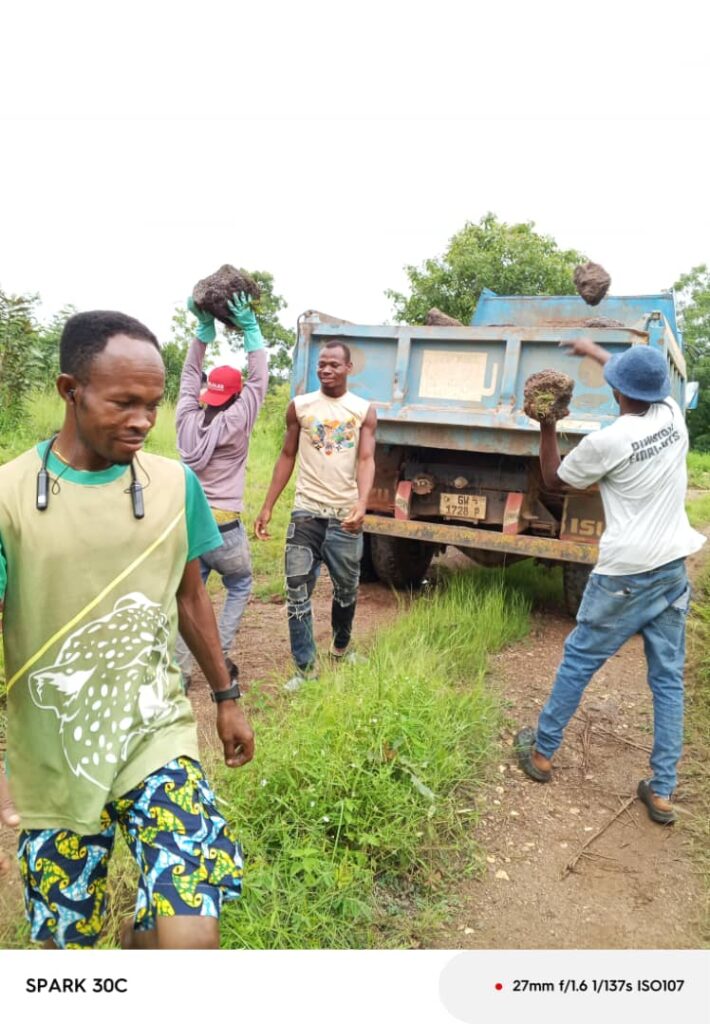
Another tricycle driver, Abdallah Muslim spoke of the added difficulties faced by vulnerable passengers, such as pregnant women.
“Transporting pregnant women to the hospital is terrible. Sometimes, they even end up delivering in the middle of the road because of how bad it is,” he explained.
“During the rainy season, it’s a nightmare. The potholes fill with water, making it nearly impossible to get through. The increased travel time can be life-threatening, especially for emergencies. Worse still, the bad road conditions encourage criminal activity, as attackers often target travellers in areas where vehicles are forced to slow down.”
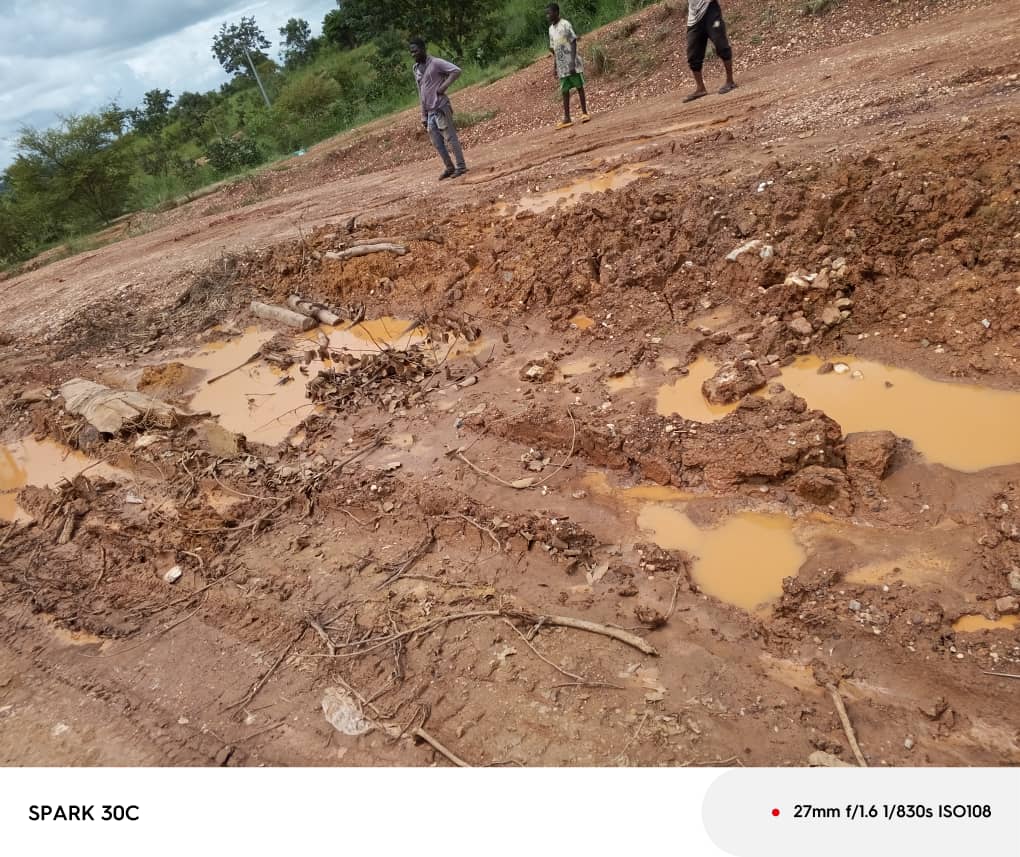
In the absence of government intervention, the Assembly Member and tricycle drivers have done their best to maintain the road with the limited resources at their disposal, but they emphasize that their efforts are merely a stopgap.
As they wait for a more permanent solution, the road continues to deteriorate, and the dangers it poses grow by the day.



















